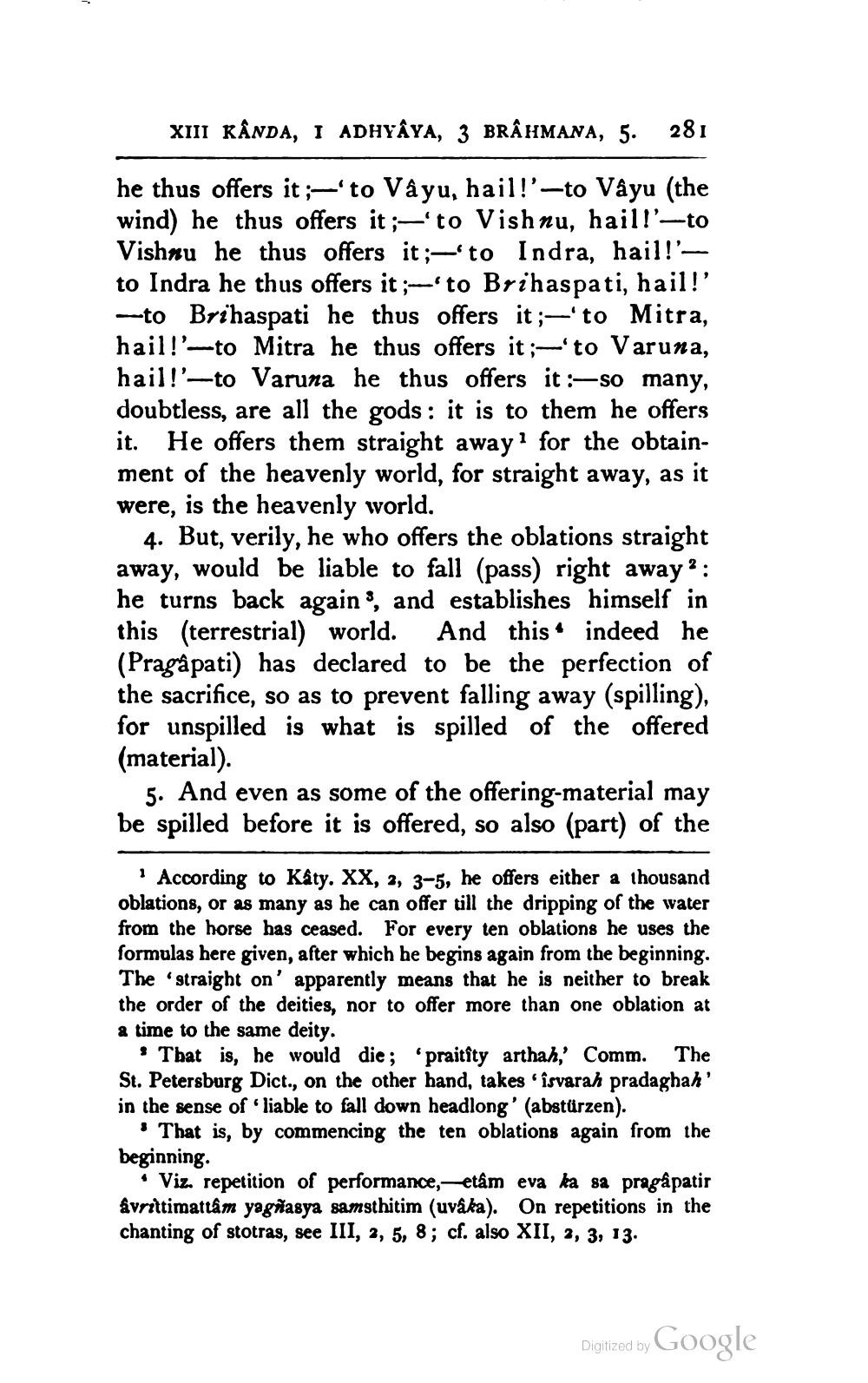________________
XIII KANDA, I ADHYAYA, 3 BRAHMANA, 5.
he thus offers it-to Vâyu, hail!'-to Vâyu (the wind) he thus offers it;-'to Vishnu, hail!'-to Vishnu he thus offers it;-'to Indra, hail!'to Indra he thus offers it; to Brihaspati, hail!' -to Brihaspati he thus offers it; 'to Mitra, hail!' to Mitra he thus offers it;-'to Varuna, hail!'-to Varuna he thus offers it:-so many, doubtless, are all the gods: it is to them he offers it. He offers them straight away' for the obtainment of the heavenly world, for straight away, as it were, is the heavenly world.
4
4. But, verily, he who offers the oblations straight away, would be liable to fall (pass) right away': he turns back again, and establishes himself in this (terrestrial) world. And this indeed he (Pragâpati) has declared to be the perfection of the sacrifice, so as to prevent falling away (spilling), for unspilled is what is spilled of the offered (material).
281
5. And even as some of the offering-material may be spilled before it is offered, so also (part) of the
1
According to Kâty. XX, 2, 3-5, he offers either a thousand oblations, or as many as he can offer till the dripping of the water from the horse has ceased. For every ten oblations he uses the formulas here given, after which he begins again from the beginning. The 'straight on' apparently means that he is neither to break the order of the deities, nor to offer more than one oblation at a time to the same deity.
That is, he would die; 'praitîty arthah,' Comm. The St. Petersburg Dict., on the other hand, takes 'îsvarah pradaghah' in the sense of liable to fall down headlong' (abstürzen).
That is, by commencing the ten oblations again from the beginning.
Viz. repetition of performance,-etâm eva ka sa pragâpatir âvrittimattâm yagñasya samsthitim (uvâka). On repetitions in the chanting of stotras, see III, 2, 5, 8; cf. also XII, 2, 3, 13.
Digitized by
Google




